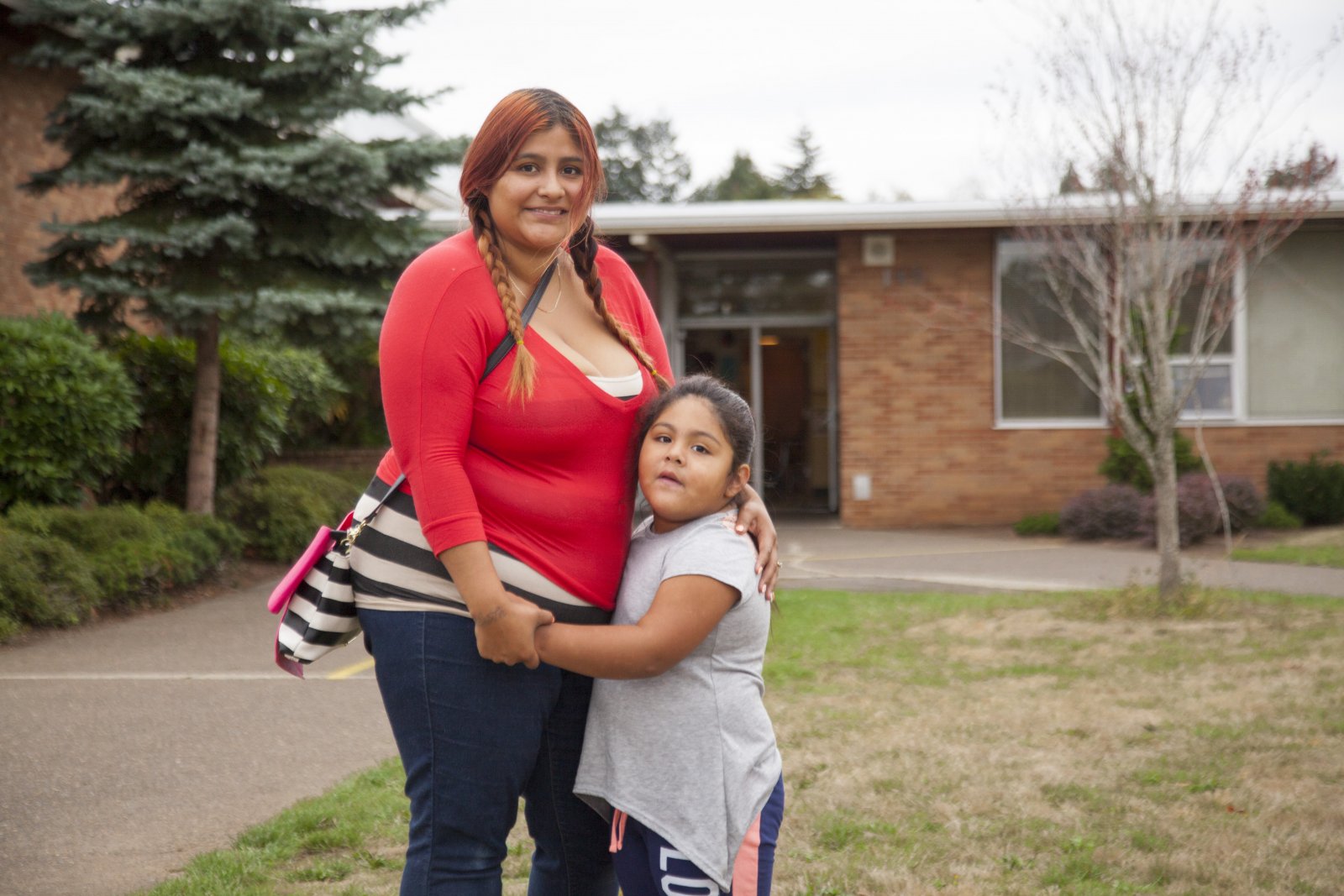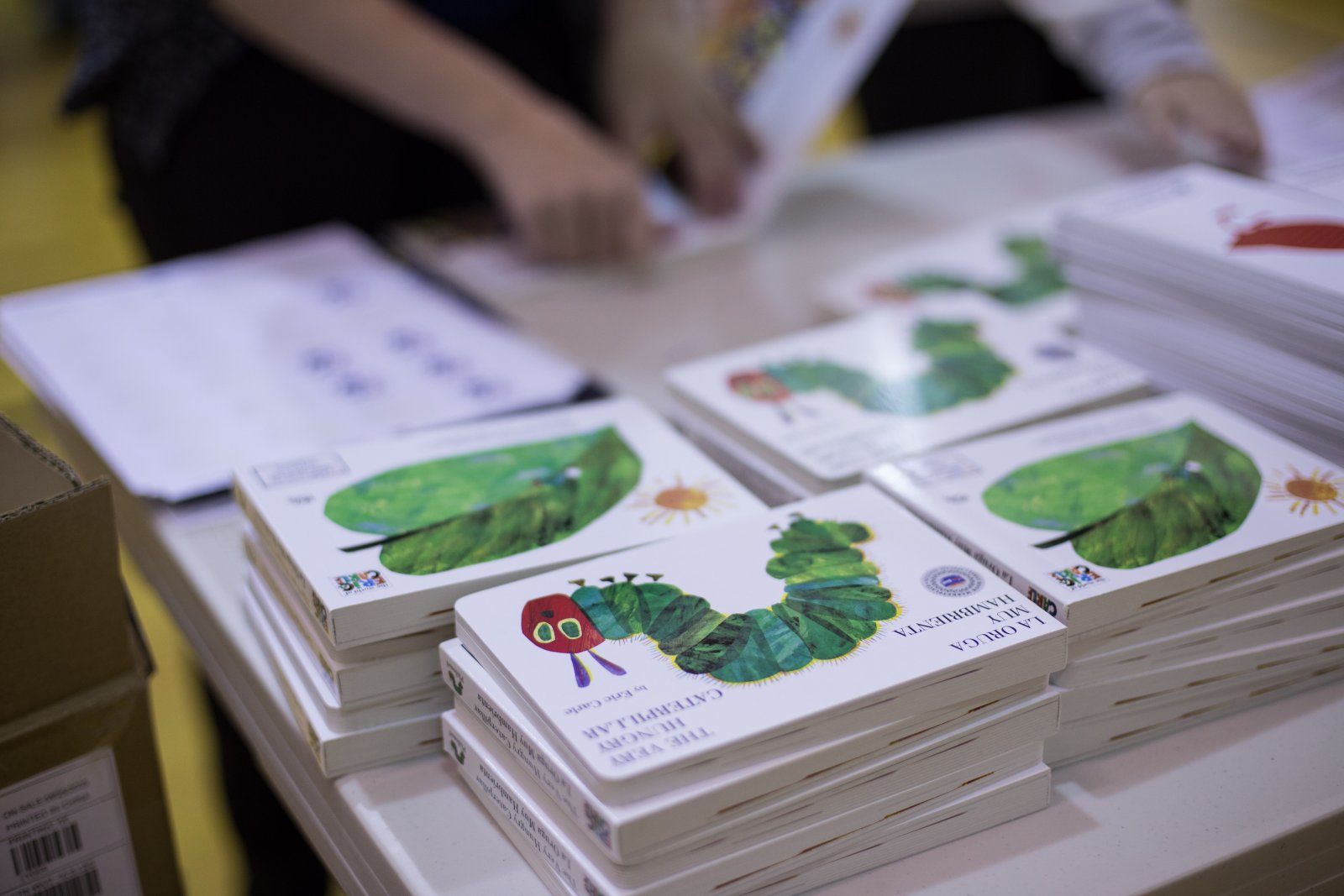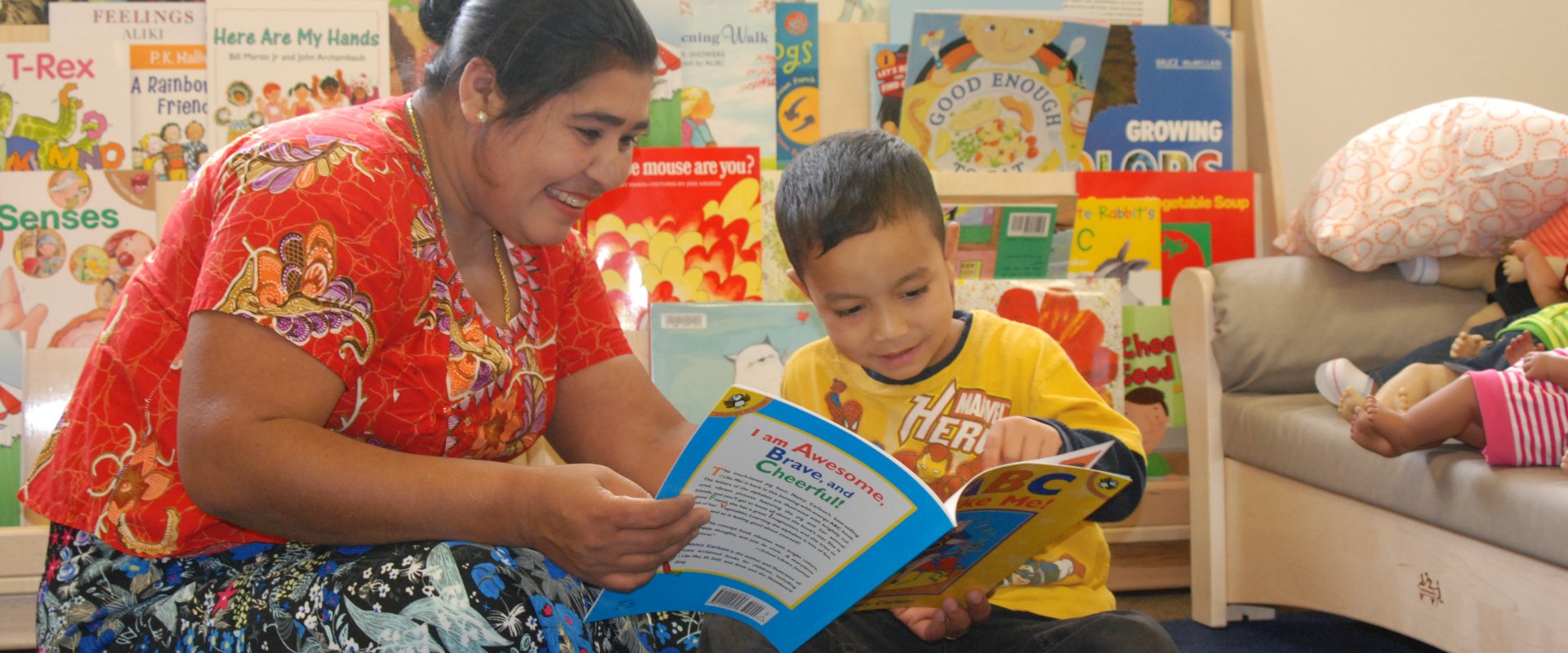Friday, Feb. 10, 2017
It’s Monday morning and Ma Nya picks up her four-year-old son Yan Soe from his brand new Preschool Promise classroom, stocked with books, wooden toys and imaginative play sets. She’s able to speak in her native Burmese to one of the teaching assistants, in between his eager attempts to share the songs and counting he’s learning.
It’s an opportunity his siblings never had at such a young age, when they were refugees living in Thailand.
Thanks to Preschool Promise funds facilitated by United Way's early learning hubs, 359 more kids like Yan Soe in Multnomah and Washington Counties have gained access to early learning opportunities this school year. They’re now getting free preschool with high-quality providers who speak their language and know their culture.
This is particularly valuable to refugees from countries like Somalia, Iraq and Burma, like Ma Nya. She said the hardest thing about coming to the United States two years ago has been the language barrier.
“I like that there are Burmese speakers here,” she said about her son’s new Preschool Promise classroom, organized by IRCO through Mt. Hood Community College Head Start, where Yan Soe spends the day with 19 Burmese children. “I’m really so happy that he is in this program. I want my children to be educated.”
Yan Soe’s experience signals a shift in education best practices — one of inclusion and equitable opportunity for families of color and families living in poverty in our region.
The demographics of schools are rapidly changing—and there are not enough culturally-responsive systems and wraparound support to keep up with the needs of increasingly diverse and stressed communities.
We know that a child’s chances of succeeding in school are largely determined before they even set foot in one. But the stresses of poverty and the isolation of discrimination can prevent parents from accessing early learning support and make it difficult for students to be engaged in the classroom to make it to graduation.
Systemic issues require a systemic response. United Way is bringing people, organizations and systems together to get better results. By coordinating school districts, culturally-specific nonprofits and local governments, we can better engage every family and truly support the kids who need it most at every stage of school — from their earliest learning experiences through high school graduation.
Kindergartners are Showing Up Prepared
United Way’s two early learning initiatives, co-led with Multnomah and Washington Counties, connect the many early learning programs in our communities to create more, and better, services for families and improve the quality of teaching for our youngest kids.
This meant that Carolina Guinto heard from someone at Ventura Park Elementary School even before her daughter Aimee started kindergarten there this fall.

“It’s like a family thing, you don’t feel left out. They know your name. Some schools, they forget your name, they don’t care. That’s what I was suspecting here. But no, here… I’m excited because I feel like a part of the community,” she said.
That’s a rare feeling for the young mother, who struggles to find support for Aimee’s development delays. Now she’s marveling at Aimee’s increased language skills and feels empowered to ask for what they need.
Here and at seven other schools in our region, new positions were created specifically to provide personal support for families before kindergarten—particularly families of color who rarely see themselves reflected in the community or find staff who speak their language.
“School can be a scary place, especially when you’re dealing with a world where you may be homeless, or hungry. Or you’ve experienced other things that keep you from connecting or trusting. You need a little extra outreach [just to feel safe],” explained Lolita Broadouse, Multnomah County’s Early Learning Coordinator for P-3 Schools.
Getting Books to Kids Early
Children have an easier time learning when reading is introduced early and often. But many parents and preschool teachers don’t have the time or even the books to make that happen. And when books don’t reflect the culture or language of young children, their literacy development often lags behind.
That’s why we’re expanding our work this year to reach the growing number of immigrant and refugee families with early literacy kits – 3,500 of them – in four languages, with stories, songs and activities that reflect their cultural values and traditions.

“This addresses “the ‘word gap” for low-income kids, a gap that slows their cognitive development and sets back their earliest math and reading skills,” said United Way President and CEO Keith Thomajan. ”It’s a critical strategy to equip parents to be their child’s ‘first teacher.’ And it increases the number of kids who show up on day one of kindergarten ready to learn.”
Helping Kids Who Need It Most Stay in School and Graduate
Graduation rates in Oregon rank 3rd worst in the nation. One in four students doesn’t complete high school - that’s nearly 13,000 students, 70 percent of whom are from low-income families.
“Students and families have faced the loss of social support systems,” explained Lai-Lani Ovalles, with United Way. “Immigrants and refugees find it hard to navigate schools and classrooms when there are language and cultural barriers. The schools can often be a difficult environment for students and families of color to feel connected, supported and validated in their cultural identity.”
United Way’s high school graduation initiative supports and connects culturally-specific nonprofits—Immigrant and Refugee Community Organization, Latino Network, Native American Youth & Family Center and Self Enhancement, Inc.— as well as Metropolitan Family Service, to schools so students get culturally-responsive services that work. This year, it’s operating in both the Reynolds and David Douglas school districts in east Multnomah County.
Teams in these schools are pioneering using data differently: assessing and measuring what activities actually help students succeed, sharing that among teachers, tutors, and after-school programs, and, soon, scaling it to reach thousands of kids across the metro region.
The results will show others what works to drive better student achievement and graduation rates for students of color, and help schools implement changes to make that happen.
United for Impact
Students and families may walk into separate school buildings every day, from East Portland to Hillsboro, and never meet. But United Way is committed to bringing together educators at every level across the region to build a more supportive and effective system that includes, honors and supports every child to reach their full potential.
“Working with United Way, you’ve got a community coming together, rallying around racial equity, talking about wraparound services,” said Open School Executive Director Andrew Mason. “It’s extremely helpful to build those relationships,” he explained. “It’s fundamentally about building community.”
Together, we’re closing the gaps where children get stuck from their earliest learning through their high school graduation—and beyond.
Help us transform education in our region. Donate today.

